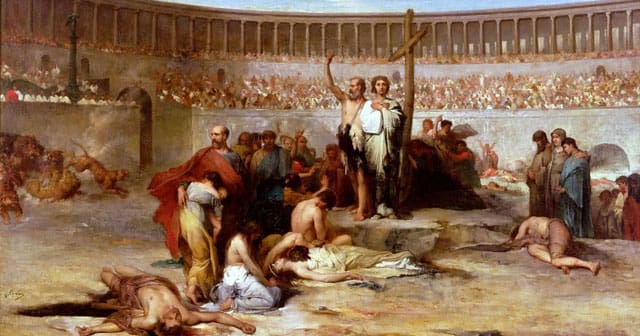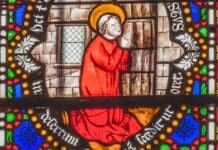Christian communities were established in Rome around a dozen years following Jesus’s death, and notably, they were not converts of the “Apostle of the Gentiles” (Romans 15:20). At the time when Paul penned his pivotal letter in 57-58 A.D., he had not yet visited these communities.
Rome boasted a substantial Jewish population at the time. It’s likely that due to escalating disputes between Jews and Jewish Christians, Emperor Claudius decreed the expulsion of all Jews from Rome in 49-50 A.D. Historian Suetonius attributes this mass expulsion to unrest in the city instigated by a figure named “Chrestus,” a probable reference to Christ. It’s plausible that many returned to Rome following Claudius’s death in 54 A.D. Consequently, the Church to which Paul addressed his letter consisted of members with both Jewish and Gentile origins.
In July of 64 A.D., a devastating fire ravaged more than half of Rome. Rumors circulated that the Emperor Nero, who had plans to expand his palace, was responsible for the catastrophe. In an attempt to deflect blame, Nero accused the Christians. As historian Tacitus documented, numerous Christians faced execution due to perceived “hatred of the human race.” Among these victims were likely the apostles Peter and Paul.
Eventually, faced with the prospect of a military rebellion and having been sentenced to death by the senate, Nero committed suicide in 68 A.D., ending his life at the age of 31.
Photo credit: Public Domain via Wikimedia Commons




















This was very interesting to read.
St. Peter and Paul and the Saints, please pray and intercede for us that my 2nd son will get the job he is been waiting for and for him to endure and pass the trainings, bless and protect our family, Amen.
St . Peter, St.Paul, all the martyr Saints, please intercede for me that my personal intention finds favor before God, Mary Mother of God, pray for us. I pray trusting and believing in our Lord Jesus Christ, who lives and reigns in the unity of the Holy Spirit, one God forever and ever, Amen.
MISSION ACCOMPLISHED,OVER AND OUT,DAD
SS PETER AND PAUL INTERCEDE FOR ME AND MY FAMILY
Saint Stephen was the first Martyr when He was describing the Jewish tribes and Heaven and they didn’t like what he was saying so they began stoning him and handing their coats over to Saul who would later become Saint Paul Oh how quickly they forget
Saint Stephen was not a martyr of Rome. This post celebrates the feastday of the first Christian martyrs of Rome. Not of Jerusalem or elsewhere. We know Saint Paul was present or condoned Stephen’s death, so his radical conversion came later. This feastday includes all the first martyrs in Rome and, as it mentions, Paul was likely one of them. It makes sense to have this feast follow the one he shares with Peter, which was yesterday.
The First Martyrs of the Church of Rome: They are praying for us.
This was very interesting to read.
Good article
This was very interesting to read.
This was very interesting to read.###
Your summary highlights the complex historical context of the period, particularly the tensions between Jewish and Jewish-Christian groups under Emperor Claudius. The reference to Suetonius’s account of “Chrestus” as a possible allusion to Christ is especially fascinating, as it underscores the early spread of Christian teachings beyond Palestine.